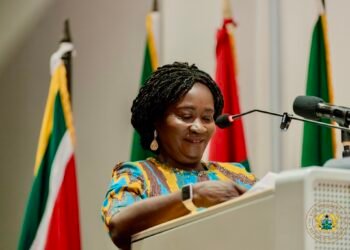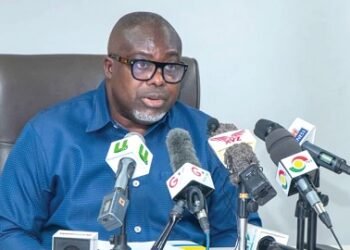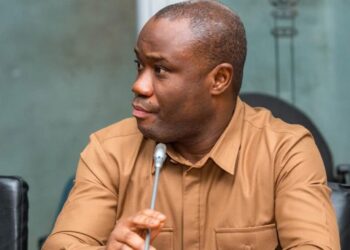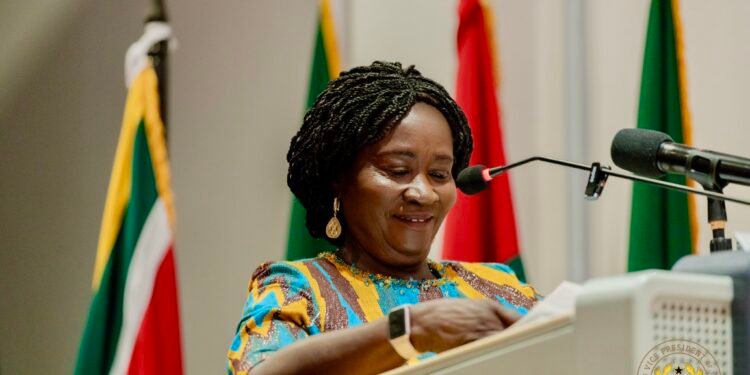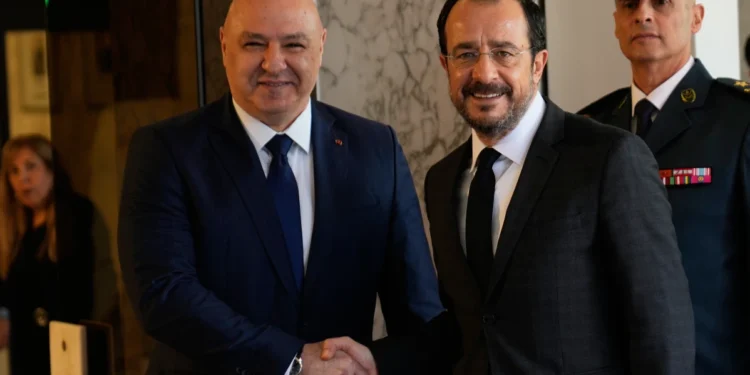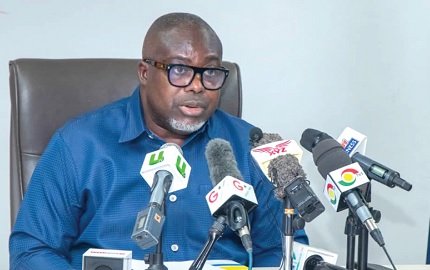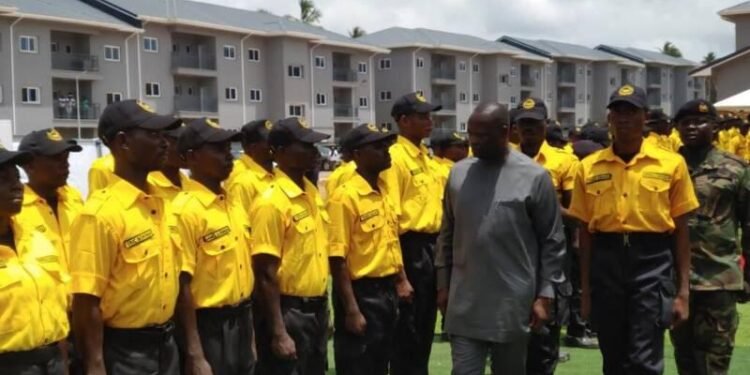Ghana and the United Kingdom reaffirmed their longstanding diplomatic, historical, and cultural ties on Tuesday, November 25, 202, as President John Dramani Mahama hosted His Royal Highness Prince Edward, the Duke of Edinburgh, at the Jubilee House.
The meeting, which forms part of the Duke’s official visit to Ghana, highlighted the shared values that have shaped bilateral cooperation for decades and the mutual commitment of both countries to strengthening multilateralism, youth empowerment, global peace, and democratic governance.
Addressing the gathering, President Mahama began by situating the Ghana–UK relationship within a long arc of history, noting that it remains one of Ghana’s most enduring global partnerships.
“I don’t need to talk about the historical relationship between Ghana and the United Kingdom, because it is longstanding, and all of us in school have learned the history of where our relationship started”.
President John Dramani Mahama
He explained that Ghana’s ties with the UK have deepened since independence, anchored largely through the Commonwealth and strengthened by shared political principles.

“We have been particularly close to the United Kingdom because of the values that we share—shared values of respect for human rights, shared values of democratic governance, and values of humanity, and that continues to keep our two nations close together.”
President John Dramani Mahama
President Mahama highlighted the continuous exchange of visits between high-ranking government officials from both countries as evidence of a relationship that remains robust and mutually reinforcing.
He recalled recent visits by the UK’s Deputy Prime Minister and other senior officials, describing the Duke of Edinburgh’s presence in Ghana as “a climax to the longstanding relations that we have had.”
British’s Influence on Ghana
Turning to Ghana’s institutional framework, President Mahama underscored the significant influence of British legal and constitutional traditions on Ghana’s governance architecture. He noted that Ghana’s jurisprudence, rooted in the British common law tradition, provides clarity and fosters public trust.

“Our jurisprudence is based on UK law, common law, and it gives Ghana an advantage because I believe that jurisprudence based on common law is easier to understand, and people have more confidence that they will get justice from that jurisprudence.”
President John Dramani Mahama
He also outlined similarities in constitutional practice, including Ghana’s hybrid system where ministers serve as Members of Parliament and appear before the legislature for question time and accountability.
The President situated the Duke’s visit within a shifting global landscape, calling attention to threats facing the multilateral cooperation framework that emerged after the Second World War.
He praised the achievements of multilateralism, especially the Millennium Development Goals, which he said helped lift millions out of poverty. With the world approaching the 2030 deadline for the Sustainable Development Goals, he reaffirmed Ghana’s belief that global challenges—from climate change to conflict—require collective action.
“Climate crisis affects all parts of the world, and no one country can adapt or find any resolution. The only way we can tackle the climate crisis is to tackle it multilaterally. And I want to congratulate the UK for its leadership when it comes to issues of climate change and climate resilience.”
President John Dramani Mahama
Unilateral Tendencies in Global Politics
President Mahama also expressed concern about emerging unilateral tendencies in global politics. Referring to ongoing conflicts and the disruption of the rules-based international trading system, he cautioned that nations must resist actions that undermine decades of global cooperation.

“I believe that unilateral action is not helping the global order. Aside from that, the upending of the rules-based trading system, where countries wake up in the morning and just impose tariffs on anybody else, I think it is upending the rules-based trading system that we all have nurtured for years.
“We must develop new partnerships that allow us to continue to work together, not as individual countries, but as coalitions of the willing. And no better country to be a partner with than the United Kingdom, which has been a historical partner to Ghana since our independence.”
President John Dramani Mahama
The President also spoke at length about the legacy of the Duke of Edinburgh Award and its impact on youth development in Ghana. Commending the Duke for continuing the work associated with his late father, he noted that the Award scheme provides discipline, creativity, ambition, and purpose for young people.
“It instils in them discipline. It instils in them creativity, and it instils in them the ambition to achieve,” he said, emphasising that the Government of Ghana continues to support the programme and considers the Duke’s visit a significant moment for the Award’s future in Ghana.
Duke’s Response
In his response, Prince Edward conveyed “greetings from His Majesty the King and my brother to all of you and to the people of Ghana,” noting the King’s familiarity with and deep respect for Ghana.
“This has been a wonderful opportunity for me to be able to return to Ghana,” he said, recalling that his last visit was in 2018. The Duke expressed his appreciation for the opportunity to reconnect with Ghanaian society and learn about the nation’s progress across multiple sectors.

Reflecting on the title he inherited from his late father, the Duke acknowledged the weight of the legacy associated with the Duke of Edinburgh name. “I have a lot to try to live up to, and I have a lot of heritage and legacy to be able to try to continue, and it’s with great pride that I try to do that,” he said.
He emphasised his strong commitment to the Duke of Edinburgh’s Award, which he described as one of the most important avenues for empowering young people to discover “passion, purpose, and place in the world.”
Prince Edward also spoke warmly about the shared history between Britain and Ghana, expressing appreciation for the cultural continuity represented by Ghanaian traditional authorities.
He praised the durbar held in his honour and acknowledged the significance of traditional governance to Ghana’s national identity. He also highlighted the importance of mutual respect and cooperation in sustaining bilateral ties.
“How we continue our relationship as two countries with mutual respect for our common prosperity, and to empower the youth of the future to take on those roles as we go forward”.
His Royal Highness Prince Edward, the Duke of Edinburgh
The Duke concluded by expressing anticipation for Ghana’s participation in the next Commonwealth Games, describing the event as an important platform through which the Commonwealth family reaffirms its unity and shared future.

The visit marks another chapter in the evolving partnership between Ghana and the United Kingdom—a relationship rooted in history yet responsive to the pressing global challenges of the 21st century.
Both leaders signalled their desire to strengthen cooperation in diplomacy, governance, climate action, trade, and youth development, demonstrating a shared commitment to shaping a more stable and equitable world.
READ ALSO: Oil Prices Dip as Oversupply Fears Outweigh Russian Supply Uncertainty




